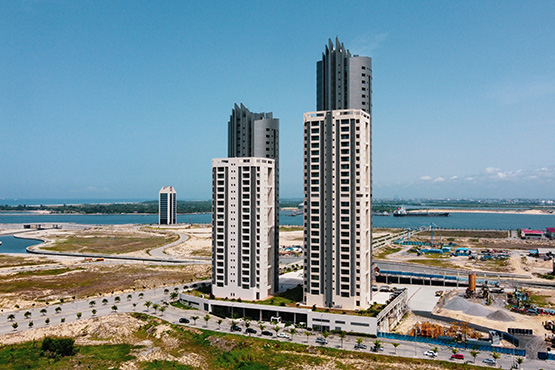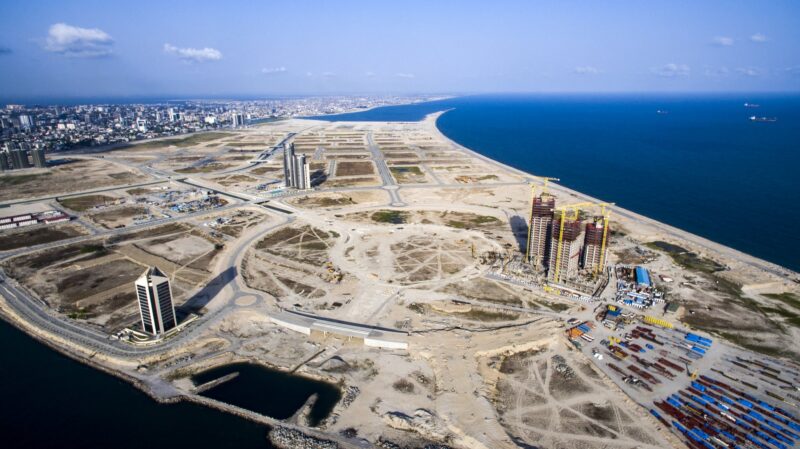Business
Inside Eko Atlantic, where plot of land sold for N2 billion

Land prices in Lagos have seen massive increases over the past decade, turning real estate into a major source of wealth
Several factors, including rapid urbanisation, population increase, and major infrastructure projects, drive this growth
High-end properties now offer world-class amenities and are seen as status symbols, attracting both wealthy locals and diaspora investors.
Land that used to cost about N180 million in Eko Atlantic in the early 2000s is now worth over N2 billion, according to the third edition of the State of Lagos Housing Market report.
This shows how fast land prices, especially in top locations by the coast, have grown in Lagos.
According to Punch, the report explains that over the past ten years, the real estate market in Lagos has changed a lot, especially in luxury areas.
What used to be affordable land has become expensive and highly competitive. This growth has been influenced by the economy, rising population, and major infrastructure projects.
According to the report, one clear example is Ibeju-Lekki. In 2013, land there was sold for about N500,000 to N1.5 million. By 2018, prices rose from N5 million to N10 million as projects like the Lekki Free Trade Zone began.
By early 2025, land prices in the same area had increased to between N25 million and N40 million, a significant rise in just 10 years.
According to the report: “Similarly, plots in Lekki Phase 1 that were priced at N10m – N15m in 2005 are now valued at over N400m – N500m. Land prices in Eko Atlantic, which stood at N180m per plot in the early 2000s, have also escalated to over N2bn today.”
These price hikes show that buying land in Lagos has become a major way to grow wealth.
The report also notes that this growth isn’t just because people need homes—many wealthy investors, including Nigerians living abroad, see luxury real estate as a safe and profitable investment.

This is especially true for those willing to hold onto their land for a long time.
Why Eko Atlantic?
Lagos Eko Atlantic properties are highly sought after due to their prime location, modern infrastructure, and potential for long-term investment returns. Situated in Victoria Island, the development offers proximity to key business areas, international airports, and the seaport.
Investors are drawn by the tax incentives from being within a Free Trade Zone and the area’s ability to attract multinational corporations.
The city boasts state-of-the-art amenities such as independent power supply, waste management systems, and secure living environments.
With its high-value properties, waterfront views, and promising future growth, Eko Atlantic is seen as a hub for luxury living and business opportunities.













